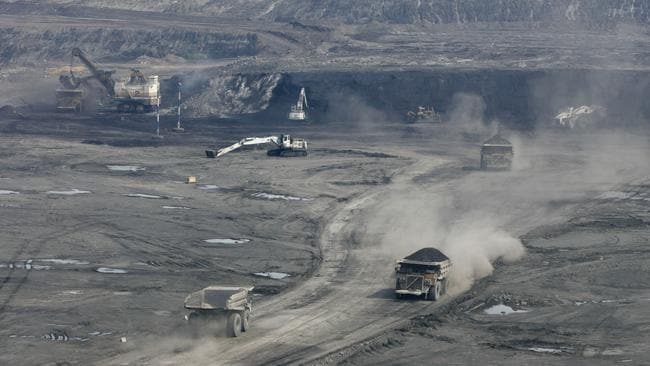The Australian Business Review, 16th July 2019: Stronger signs are emerging that BHP is poised to exit the thermal coal market, with sources suggesting that the resources giant has hired Macquarie Capital to undertake a scoping study to determine whether to divest investments in the sector estimated to be worth more than $4 billion.
Under consideration is believed to be its Mount Arthur Coal business in NSW and the 33 per cent interest in its long-life Colombian mine Cerrejon.
Colombian mine Cerrejon is one third-owned by BHP, Anglo American and Glencore. Picture: AP
While BHP declined to comment on its intentions with its thermal coal mines, the company is known to be under increasing pressure to distance itself from the resource due to activist investors and at a time institutional investors become more conscious of exposure to assets that face environmental concerns, with cleaner alternative energy sources being sought globally.
Many prominent global financiers are already refusing to offer loans linked to the thermal coal industry.
A sale of Mount Arthur has been predicted for more than a year, with suggestions JPMorgan is well placed to win a mandate. Last year its value was estimated at $US3bn ($4.27bn), although it may now be far less, potentially $US2bn. It is the largest coal production site in the Hunter Valley, producing thermal coal for energy use in Australia and abroad.
One of the factors weighing against a sale is that BHP has tax credits linked to the project that cannot be transferred from when it was part of the former Billiton business, and that will no doubt be under consideration as part of the scoping study.
However, the thinking now is that the timeframe for those tax credits is coming to an end — possibly in about two years — which could make a sale all the more plausible.
Activist investor Elliott Management in 2017 lobbied for a sale of Mount Arthur, as it also urged BHP to divest its US shale assets, which it has since sold.
Cerrejon is one third-owned by BHP, Anglo American and Glencore, which all no doubt have pre-emptive rights to buy out the other shareholders.
The mine is one of the largest surface mining operations in the world and produces high-quality thermal coal for the export market, moving 550 million tonnes of material annually.
Should a sale proceed, the expectations are that China’s Yancoal and Anglo American could be the most logical buyers.
With Glencore, Yancoal made a $US3.5bn purchase of Rio Tinto’s Coal & Allied thermal coal operations in the Hunter Valley. Glencore could also be a buyer after it last year bought Rio’s Hail Creek coking coal mine in Queensland for $US1.7bn. However, the self-imposed production cap on thermal coal introduced by the Switzerland-based global trader this year means that Glencore would probably have to offload another asset to own a greater share of Cerrejon to meet its own investment restrictions.
Another possibility is that a consortium comprising energy companies could be eager suitors.
Should Mount Arthur and Cerrejon be sold separately, Australian coal companies including Whitehaven, New Hope and Centennial Coal would all be interested in the Mount Arthur asset.
The price of thermal coal has been in decline this year and the thought of activist investors is that should the mining giant delay the sale, it may be leaving it too late to achieve a high price.
Some are doubtful that BHP will achieve top dollar, as was the case with Rio when it sold out of the sector last year when the thermal coal price was higher as part of a broader rebound in commodity prices, in deals some analysts thought were well timed.
Still to sell its thermal coal assets is BHP offshoot South32.
Bidders are now said to be short-listed for its South African Energy Coal operations that carry a price tag of about $1bn, but with $700 million of remediation costs that will be picked up by South32.
Macquarie Capital and Morgan Stanley are working on the deal.
